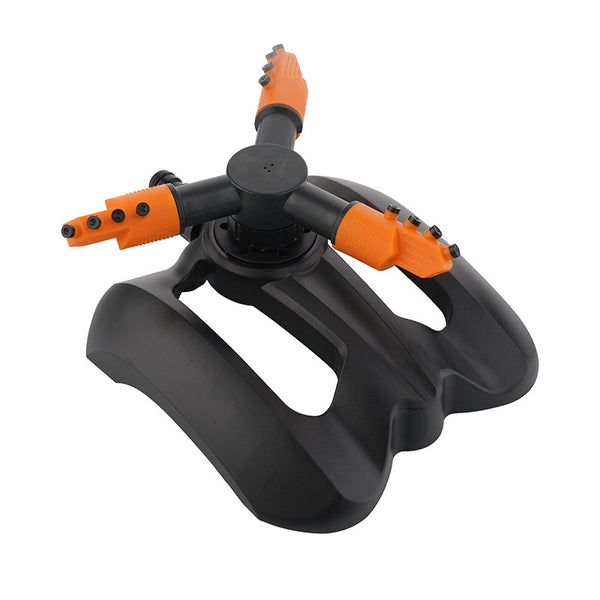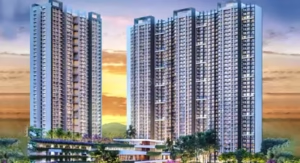
Watering your lawn or garden has always been a labour-intensive task. However, modern water sprinkler systems have redefined irrigation with their precise technology and user-friendly designs. These systems are not just about convenience but are crucial in resource conservation, sustainability, and landscape enhancement. Suppose you’ve contemplated integrating a water sprinkler system into your home or business. In that case, this guide will show you how it can transform your daily operations and outdoor spaces while being eco-friendly.
What Are Water Sprinkler Systems?
Water sprinkler systems are devices designed to disperse water evenly across a given area to maintain vegetation, grass, or crops. These systems simplify irrigation while minimising water wastage, whether installed in residential backyards, expansive commercial landscapes, or large-scale agricultural fields. The technology has evolved tremendously, with systems now equipped to function automatically or semi-automatically, taking the guesswork out of managing watering schedules.
Unlike traditional methods like hose watering, sprinkler systems eliminate irregular watering patterns and ensure consistent soil moisture levels. Moreover, technological advancements, such as timers and sensors, have elevated their efficiency, making them a worthy investment for anyone serious about healthy, vibrant landscapes.
Benefits of Installing Water Sprinkler Systems
Optimised irrigation is just one piece of the puzzle regarding water sprinkler systems. Their utility stretches far beyond watering, making them a highly versatile choice for many applications. Let’s explore the broader advantages:
Conserves Water Resources
One of the foremost benefits of modern water sprinkler systems is their ability to reduce water usage. With built-in timers, smart sensors, and adjustable nozzles, they deliver water exactly where it’s needed and in appropriate amounts. Compared to manually watering gardens or lawns, these systems can cut water wastage by 30-50%.
Promotes Healthy Plant Growth
Plants thrive on consistency, and water sprinkler systems are designed precisely. Depending on plant needs, these systems can regulate watering cycles, ensuring optimal soil moisture without overwatering or leaving dry patches. Healthy plants are not just about aesthetics—they also improve air quality and curb soil erosion.
Reduces Labor and Saves Time
Automated systems allow homeowners, facility managers, or farm owners to spend time on other pressing tasks while the sprinkler handles irrigation. Reducing manual labour costs can contribute significantly to operational savings in industries like farming.
Eco-Friendly Options
Newer models are often designed with eco-conscious consumers in mind. Smart sprinklers can adjust watering schedules based on weather conditions, ensuring water isn’t wasted during rainy seasons. This helps balance environmental concerns with the convenience of modern technology.
Types of Water Sprinkler Systems
The choice of a sprinkler system often depends on the size of the area to be covered, water pressure availability, and the type of vegetation being irrigated. Below are some popular categories to consider:
Spray Sprinklers
Spray sprinklers are perfect for small to medium-sized landscapes such as residential yards or commercial front lawns. They spray a fine water mist in a fixed or adjustable arc, offering excellent coverage for areas where precision is crucial.
Rotor Sprinklers
Ideal for medium to large spaces, rotor sprinklers offer excellent coverage by rotating in circular or semi-circular arcs. They often work at a lower precipitation rate, ensuring deep soil penetration and consistent watering, perfect for broad green lawns.
Drip Irrigation Sprinklers
These systems are incredibly water-efficient and cater exceptionally well to individual plants or specific rows in gardens. Drip irrigation systems reduce evaporation and runoff, delivering water directly to the roots for maximum absorption.
Smart Irrigation Systems
Smart sprinklers are designed for tech-savvy homeowners who wish to maintain pristine landscapes with minimal manual involvement. Equipped with Wi-Fi connectivity, these systems can be controlled via smartphone apps and even integrate with local weather forecasts to adjust watering schedules automatically.
How to Choose the Right Water Sprinkler System
Selecting the right sprinkler system doesn’t have to be a complicated process. However, there are some considerations to keep in mind:
Assess Your Watering Needs
Think about the type of plants you’re growing and their water requirements. Grass, ornamental plants, flowers, and shrubs often demand different watering techniques. Ensure your chosen system is versatile enough to cater to all your vegetation.
Evaluate Your Area Size and Shape
Not all sprinkler systems are designed to handle the same areas effectively. While spray sprinklers work well for compact spaces, rotor sprinklers might be more suited to expansive regions. Ensure the system’s design matches your landscape’s dimensions and layout.
Check Water Pressure Requirements
Some sprinklers need high water pressure to function optimally, while others are built for areas with low pressure. Conduct a water pressure test to determine which system fits your property.
Research Automation Options
With advancements in technology, automation is an attractive feature to consider. Look for systems with programmable timers or compatibility with apps for enhanced convenience.
Maintaining Water Sprinkler Systems
Owning a sprinkler system involves more than installation; consistent upkeep ensures longevity and effectiveness. Here are some tips to maintain your investment:
Regularly Inspect for Leaks
Leaks can waste gallons of water if left unattended. Conduct periodic checks to identify cracks, damaged nozzles, or loose fittings that could affect your system’s performance.
Clean Clogged Heads
Dirt, debris, and calcium deposits can clog sprinkler heads over time. Clean them gently with a soft brush or soak them in vinegar to ensure proper water flow.
Winterise the System
Proper winterisation is critical if you live in an area with cold winters. Flush out all water from the pipes before freezing temperatures arrive to avoid burst pipes and costly repairs.
Update or Upgrade as Necessary
As with any other system, upgrading old sprinklers to newer, more efficient models can save water and energy. Look for advanced designs that cater to evolving landscape irrigation needs.
Environmental Impact of Water Sprinkler Systems
Modern irrigation systems are an essential part of a sustainable ecosystem. Unlike wasteful traditional watering techniques, they significantly contribute to water conservation efforts. These systems align perfectly with today’s eco-conscious lifestyles by reducing runoff, minimising evaporation, and using weather-based adjustments.
As global freshwater resources grow increasingly scarce, adopting efficient technologies like sprinkler systems ensures that landscapes stay green without compromising environmental responsibility. Moreover, they promote a healthier balance between artificial interventions and natural resource management.
Water Sprinkler Systems for Residential, Commercial, and Agricultural Use
The versatility of sprinkler systems ensures their usefulness across diverse fields:
Residential Applications
From small backyards to front lawns, sprinkler systems simplify irrigation for homeowners. They eliminate the hassle of moving hoses and watering cans, delivering uniform coverage with minimal effort.
Commercial Landscape Maintenance
These systems provide a reliable way to maintain visually appealing and functional outdoor spaces for parks, golf courses, or corporate office landscaping. In commercial applications, automated and rotor systems are often the go-to choice.
Agricultural Productivity
In large farms, consistent water delivery is critical to crop yields. Drip or sprinkler systems are integral in precision farming, allowing for efficient irrigation while minimising water and fertiliser waste.
Misconceptions About Water Sprinkler Systems
Despite their advantages, several myths surround these irrigation solutions. Let’s debunk a few:
- They waste water: In reality, advanced systems help save water by targeting only specific areas and avoiding unnecessary wastage.
- They’re expensive: Although the initial setup might seem costly, their long-term savings in labour, water, and maintenance more than justify the expense.
- They’re complex to install: Professional services simplify installation significantly, ensuring the setup meets your landscape’s unique needs.
Frequently Asked Questions
What factors influence the cost of water sprinkler systems?
The cost typically depends on the type of system, the size of the area, and additional features like timers or sensors. Installation costs may also vary depending on location and labour charges.
Can I install water sprinkler systems myself?
While DIY installations are possible for smaller systems, professional installation ensures proper water distribution, optimal coverage, and a longer-lasting setup.
How often should sprinkler systems be maintained?
Regular checks are advisable every season, with more extensive maintenance required annually to address issues like leaks, clogged heads, or mechanical damage.
Do water sprinkler systems work during a water shortage?
Many systems feature smart sensors or programmable timers that optimise irrigation even in areas with restricted water availability. Consult local authorities about water usage regulations in your region.
How do I winterise my sprinkler system?
Start by shutting off the water supply and draining the system completely. Consider using compressed air to clear residual water from pipes and insulate above-ground components.
What are the key advantages of automated sprinkler systems?
Automation offers convenience, precision watering, water savings, and often weather-responsive adjustments, ensuring the healthiest landscapes with minimal effort.
Conclusion
Modern water sprinkler systems are a remarkable advancement in irrigation technology. Whether you’re a homeowner looking to enhance your yard, a business owner managing sprawling landscapes, or a farmer focused on maximising crop yields, these systems deliver unmatched convenience, water conservation, and long-term cost savings.
By investing in an efficient sprinkler system, you’re caring for your plants and contributing to a sustainable future. So, why take the plunge and explore options to upgrade your irrigation today?




